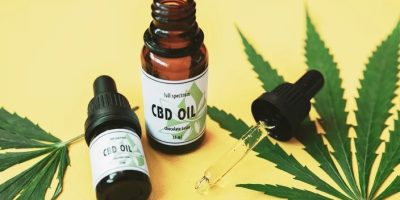
CBG oil and CBD oil are both gaining attention for their promising health benefits, but understanding their unique properties is crucial to making an informed choice for wellness routines. While both are extracted from the cannabis plant, they interact differently with the body’s endocannabinoid system and offer specific advantages for various health concerns.
What Is CBG Oil?
Cannabigerol (CBG) is often dubbed the “parent” or “mother” cannabinoid because it is the precursor from which other cannabinoids, including CBD, are synthesized within hemp plants. Unlike CBD, which is widely available in much larger quantities, CBG appears in the plant at much lower concentrations, making its extraction more complicated and costly. The resulting oil, rich in CBG, is thus often rarer and usually more expensive than comparable CBD oils.
What Is CBD Oil?
Cannabidiol (CBD) has become a household name for its extensive research and wide-ranging wellness applications. It’s known for its anti-inflammatory, anti-anxiety, and pain-relief properties. CBD oil is produced in higher volumes due to its abundance in mature hemp plants and enjoys greater availability and affordability in the market.
How Do They Work?
The biggest scientific difference lies in how these cannabinoids interact with the endocannabinoid system (ECS):
- CBG interacts directly with the primary cannabinoid receptors (CB1 and CB2). This means CBG may influence functions like pain, inflammation, mood, and appetite in more direct ways.
- CBD tends to work indirectly, modulating how the body’s endogenous cannabinoids bind to receptors, which may result in subtle but effective effects on overall balance or homeostasis.

Health Benefits of CBG Oil
While research is still emerging, potential benefits of CBG oil include:
- Anti-inflammatory effects, particularly for inflammatory bowel disease (IBD) and irritable bowel syndrome (IBS).
- Neuroprotection: Preclinical studies suggest CBG may protect neurons and help in neurodegenerative conditions like Huntington’s disease.
- Pain management: Analgesic properties, potentially beneficial in conditions like multiple sclerosis or general muscle recovery.
- Eye health: Reduces intraocular pressure, which can aid in glaucoma.
- Antibacterial and antifungal effects, including action against drug-resistant bacteria.
- Mood support: Early studies note CBG’s antidepressant and anti-anxiety effects without intoxication.
Choosing the Right One
Choosing between CBG oil and CBD oil depends on individual health goals and responses. For those targeting gut health, neuroprotection, or specific inflammatory and bacterial conditions, CBG oil may provide unique support. For anxiety, general wellness, and day-to-day stress, CBD oil continues to be a reliable option.
Both oils can be used in tinctures, topicals, or edibles, and starting with a low dose is suggested to determine personal response. As research evolves, the combined or “full-spectrum” use of CBD and CBG may further enhance their health benefits, leveraging the “entourage effect” found in whole-plant cannabis extracts.
Exploring both options and consulting with healthcare professionals can help tailor a cannabinoid routine for optimal wellness.








